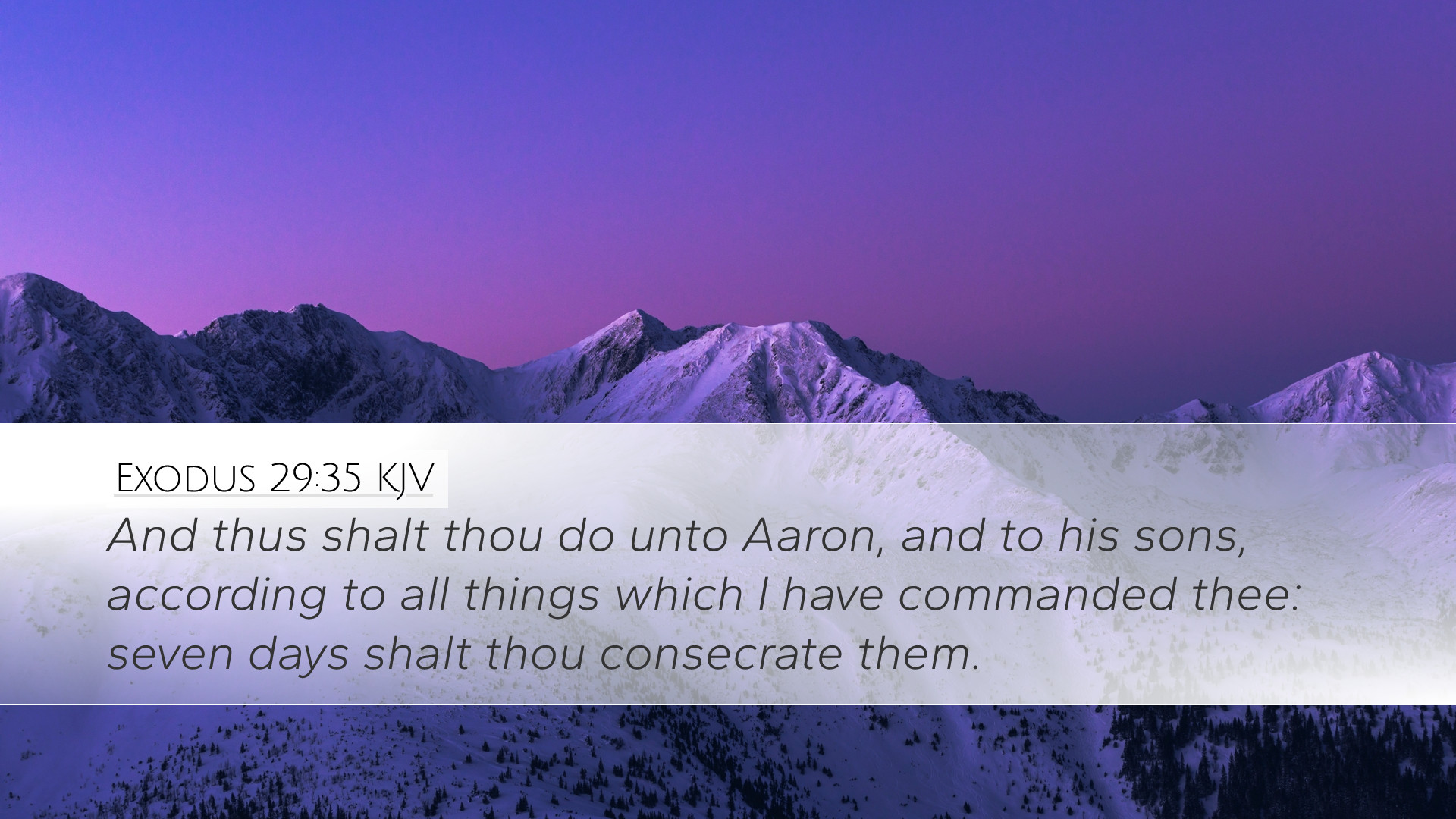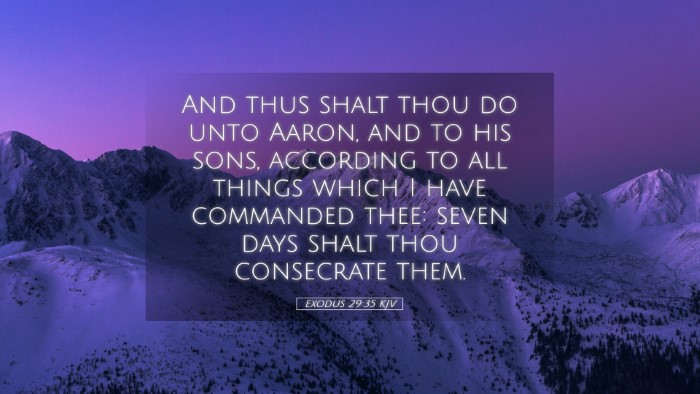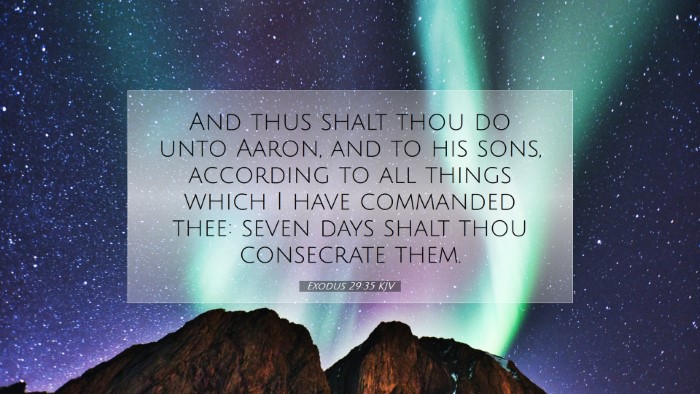Exodus 29:35 - Commentary
Verse Reference: Exodus 29:35
"And thus shalt thou do unto Aaron, and to his sons, according to all which I have commanded thee: seven days shalt thou consecrate them."
Introduction
The consecration of the priests as described in Exodus 29:35 is a pivotal act in the establishment of the Levitical priesthood. It signifies not merely an outward ritual but symbolizes the inner transformation required for those who would stand before God on behalf of the people. This verse encapsulates the directive for the ordination of Aaron and his sons, emphasizing the importance of obedience to divine instruction.
Contextual Analysis
The chapter outlines the broader context of the sacrificial system and priestly duties which God instituted. The detailed instructions given in this passage serve a dual purpose: they are a blueprint for the ceremonial practices of the Israelites and a theological statement about God's holiness and their need for consecration.
- Divine Instruction: The command to consecrate the priests highlights God’s authoritative role in setting guidelines for worship.
- Seven Days of Consecration: The number seven symbolizes completeness and perfection in biblical symbolism. This period of consecration underscores the seriousness of the priests' new roles.
Insights from Commentaries
Matthew Henry's Commentary
Matthew Henry emphasizes the significance of this week-long consecration process as not only a preparation for priestly duties but also as a symbolic representation of Christ's own priestly work. He notes that the transition from the mundane to the holy requires an acknowledgment of dependence on God’s strength and grace.
Albert Barnes' Notes on the Bible
Barnes elucidates that the act of consecration is critical for demonstrating the seriousness of the priestly role. He explains that this period was necessary for spiritual readiness, which signifies that the work of ministry is fundamentally a divine calling requiring adequate preparation. He draws parallels between the ordination of the priests and the believer's sanctification today, suggesting that all Christians are called to live a life set apart for God's service.
Adam Clarke's Commentary
Clarke points out that the phrase "according to all which I have commanded thee" indicates the absolute necessity of adhering to divine instructions. He remarks on the obedience required during this ordination process, stressing that the lack of obedience could result in dire consequences for the priests' service. Clarke further notes the holistic approach to consecration, encompassing both physical and spiritual elements.
Theological Implications
The ordination of Aaron and his sons is steeped in theological significance, outlining God's desire for a people who are holy and set apart. This text teaches critical lessons about:
- The Holiness of God: God’s holiness necessitates a process of purification and sanctification for those who approach Him.
- The Role of the Priest: The priest serves as an intermediary, pointing to Christ, who is the ultimate High Priest and Mediator.
- The Importance of Obedience: The rigorous adherence to divine commands reflects the seriousness of engaging in worship and ministry.
Conclusion
Exodus 29:35 is not merely an ancient instruction but serves as a foundational text for understanding the nature of priesthood, sacrifice, and divine calling. It invokes an awareness of the significance of holiness in service. For pastors, theologians, and students, this verse is a reminder of the sanctifying work of God and the profound responsibility of presenting oneself as a living sacrifice, set apart for His purposes.


